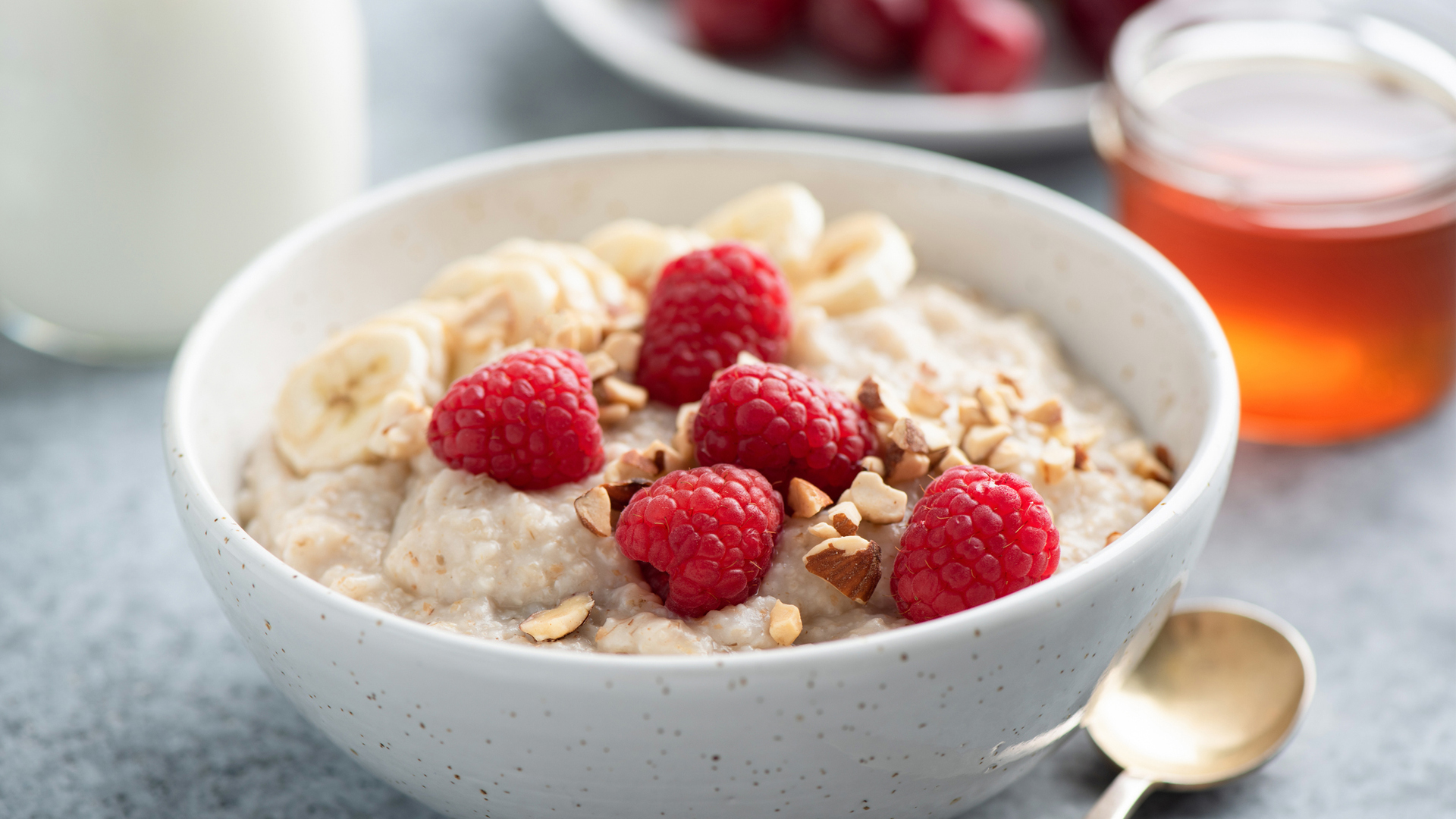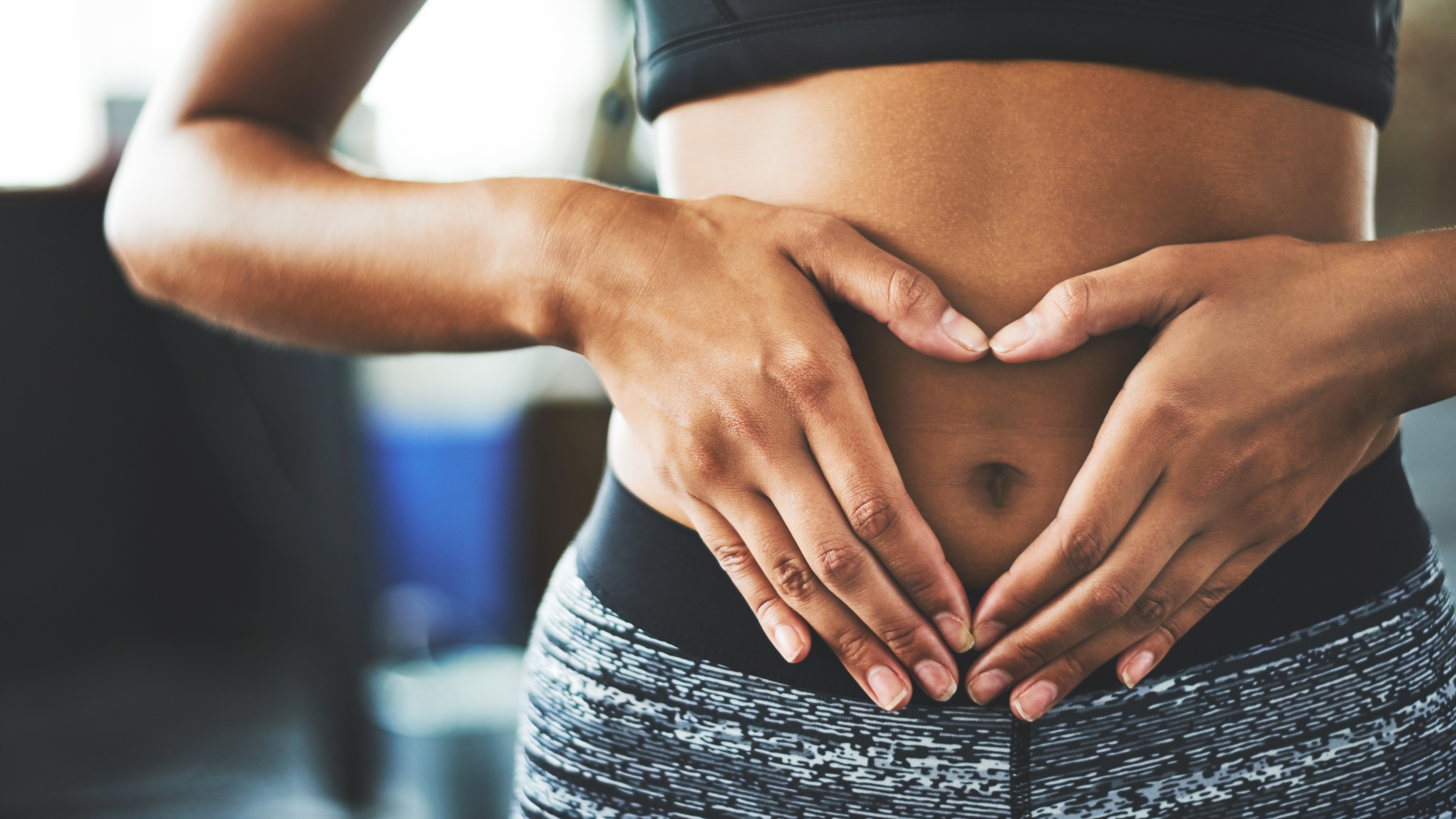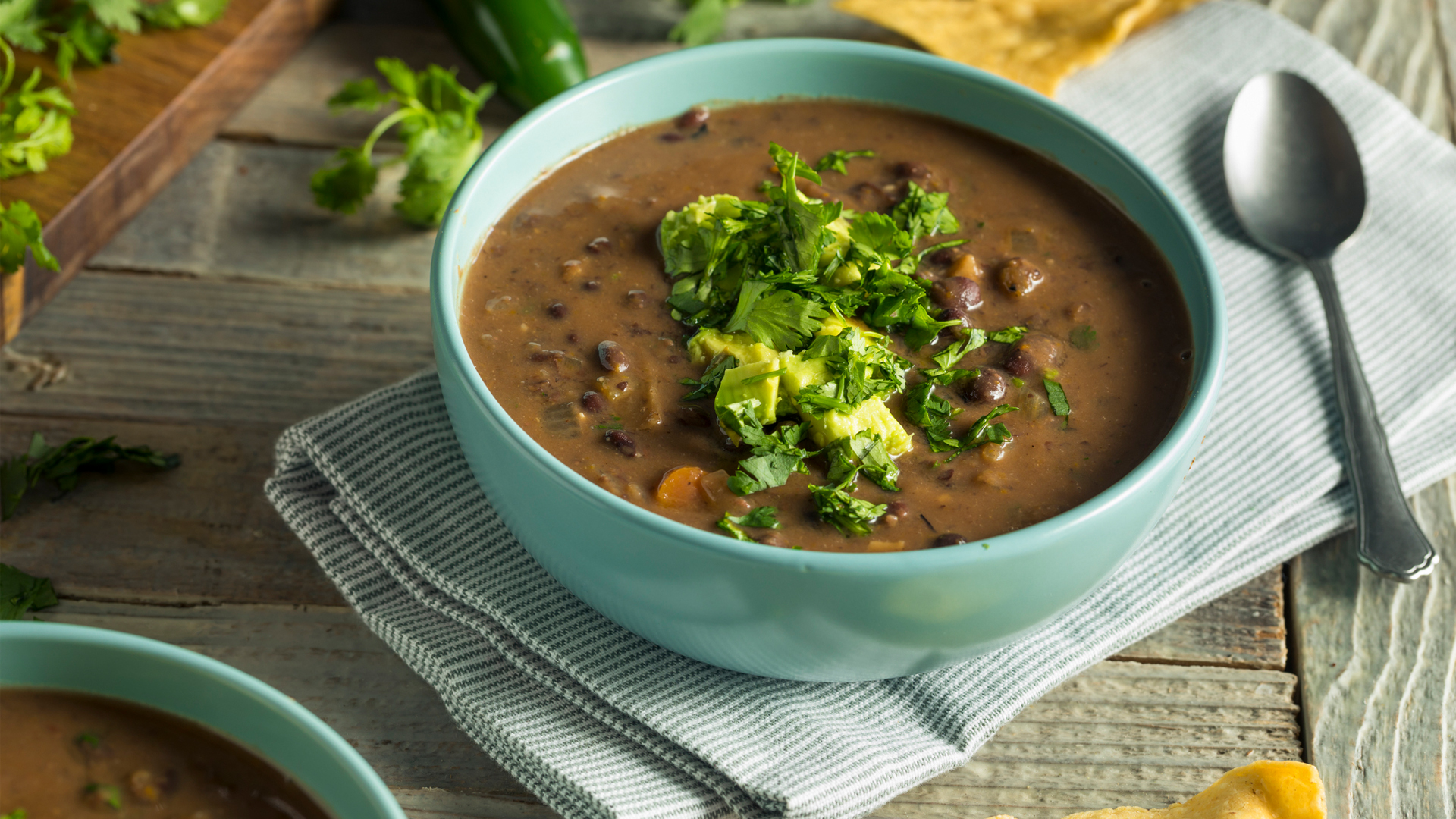How to lose weight without counting calories
Finding a weight loss method that suits your lifestyle can be difficult. Here’s how to lose weight without counting calories, according to a dietician

There are a number of reasons you might want to lose weight — maybe you’ve been advised to by a doctor or you’re trying to improve your overall health. The most common weight loss method involves eating in a calorie deficit, which means you're burning more calories than you’re eating. But this can be time-consuming and mentally exhausting, so you might be wondering how to lose weight without counting calories.
“Counting calories can be really appealing because in a world of unknowns, it gives people a sense of control,” explains registered dietitian Laura Clark. But despite this, counting calories might not necessarily be the best way to improve your overall health and for a lot of people, it’s not a sustainable way to maintain weight loss.
“On paper, we can put someone into a calorie deficit to help them lose weight, but the human system is complex and it’s sitting in a complex environment,” Clark continues. “The reality is, our drive to eat is out of our conscious control.” Limiting your calorie intake might go against your natural appetite, which can be pretty difficult to control.
Weight loss comes down to a whole range of factors, and while nutrition is a big one, exercise is also very important. The best exercise machines to lose weight can also help you to tailor your exercise routine.
So why has counting calories become such a big focus? We asked Clark to share some alternatives to counting calories that will still help you lose weight and lead a healthy lifestyle.
Do you need to count calories to lose weight?
Eating in a calorie deficit, on a biological level, causes most people to lose weight, but counting calories can be mentally and physically challenging. Plus, counting calories isn’t particularly sustainable to maintaining good health in the long-term. Not only is it time-consuming to count calories every day, but it could lead to developing negative associations with food, which could put you at risk of an eating disorder. Plus, sometimes it’s just not feasible to ignore your body’s natural appetite.
“Even if you are digging deep into that willpower muscle, it's very difficult to maintain significant deficits over very long periods of time because it goes against the body's instinct for fuel and survival,” Clark explains.
Get the Fit&Well Newsletter
Start your week with achievable workout ideas, health tips and wellbeing advice in your inbox.

On top of that, just because you’re eating in a calorie deficit, that doesn’t necessarily mean you’re eating healthy foods that nourish your body. In fact, the diet that made the calorie deficit so popular was known as the Twinkies Diet, in which a professor lost weight by surviving on nothing but junk food by eating in a calorie deficit. However, not only could this cause long term health problems like heart disease, it’s probably only going to be effective for a short period of time. A 2017 paper published in Perspectives on Psychological Science found that calorie counting is not an effective approach to long-term weight loss and good health, with researchers saying that it is, “overly optimistic to expect a simple solution to such a complex and multifaceted problem”.
Plus, our bodies are so individual that prescriptive numbers assigned to us based on our age, weight and general health might not be specific enough to help us lose weight. Rather, it’s better to take a look at your overall health, according to Clark, thinking about the macro and micro nutrients you’re eating, including fiber and protein, as well as considering your gut health and the amount of exercise you do.
4 ways to lose weight without counting calories
You might be looking for an overnight fix when it comes to losing weight but ultimately, research has found that people who lose weight quickly in a short amount of time are likely to put weight back on in the future, usually because they have practiced a method of weight loss that isn’t sustainable in the long term.
Clark therefore recommends avoiding following a diet that goes against your body’s natural wants and needs. Instead, think about making smaller changes that are likely to make you eat healthier and naturally lower your calorie intake, without you having to count calories or follow a meticulous diet.
Consider how much energy you’re getting from your food
“All calories are not created equally,” Clark explains. This is because some foods are not only more nutritionally dense than others, but they’re also better at satiating us for longer periods of time, making it easier to manage your appetite. For example, a 2014 study found that high protein diets are more satiating than diets that are high in carbs and fat, which can lead to weight loss.
Think about your gut health
More research is continuously being released on the crucial role our gut plays for our overall health and there are various studies to suggest it might be linked to weight loss. For a start, our gut microbiome might influence how easy or difficult it is for us to lose weight, according to a 2021 study.
Clark therefore recommends eating a gut-healthy diet to help you lose weight, which involves eating lots of fruit and vegetables and probiotic and prebiotic rich foods too.

Avoid liquid calories
There are some simple ways to cut your calorie intake without actually counting calories — one is to think about the liquid calories you’re consuming on a regular basis. Whether it’s alcohol, sugary drinks or coffee with milk, sugar and sweeteners, you might not realize how much the drinks you consume contribute to your daily calorie intake.
“The brain doesn’t register liquid calories in the same way it does with the calories that come from food,” Clark says, explaining that they won’t make you feel full in the same way solid food does and so you’re likely to consume more calories overall if you’re drinking high-calorie drinks.
Eat more fiber
Fiber not only improves digestion but it can make you feel fuller for longer, which means you’ll probably end up eating less overall. This is because soluble fiber in particular attracts water and forms a gel-like substance with food as it's digested, which slows down digestion and improves satiety.
“Eating healthy foods that are high in fiber will automatically mean you’re eating less foods that aren’t good for you,” Clark says, explaining that it’s a simple process of replacing fatty and processed foods for healthy alternatives, rather than cutting out food with no alternatives.
Try our high fiber diet plan to support digestion.

For more ways to eat well, check out these 11 healthy food swaps or our round-up of the best protein powder for weight loss.
Alice Porter is a freelance journalist covering lifestyle topics including health, fitness and wellness. She is particularly interested in women's health, strength training and fitness trends and writes for publications including Stylist Magazine, Refinery29, The Independent and Glamour Magazine. Like many other people, Alice's personal interest in combining HIIT training with strength work quickly turned into a CrossFit obsession and she trains at a box in south London. When she's not throwing weights around or attempting handstand push-ups, you can probably find her on long walks in nature, buried in a book or hopping on a flight to just about anywhere it will take her.